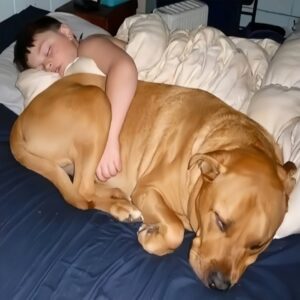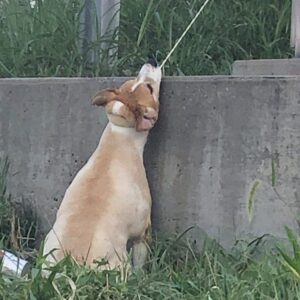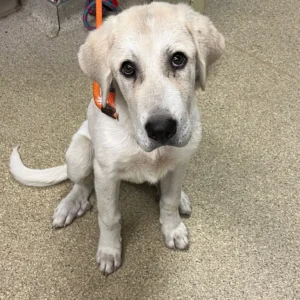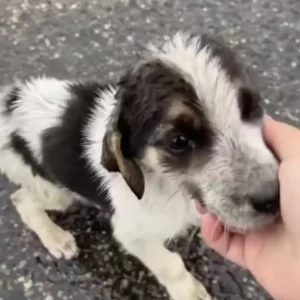The winter air in Kentucky was sharp and unforgiving. Roads were empty, fields were quiet, and the only sound was the crunch of gravel beneath car tires. Katharine and her husband, visiting from St. Louis to tour Kentucky’s famous bourbon distilleries, never expected their trip would lead them to a life-changing encounter.
As they passed the Maker’s Mark factory, Katharine noticed something unusual in a roadside trash pile. At first, it looked like a torn plastic bag shifting in the wind. But when she asked her husband to slow down, they both realized—it was breathing.
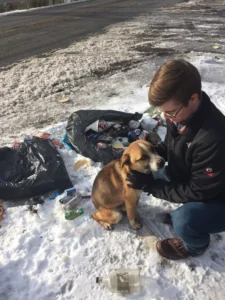
Curled up on a heap of discarded garbage was a skinny brown dog, shivering so hard that his whole body trembled. His ribs pressed sharply against his dull coat, and his eyes—half hidden under matted fur—looked both frightened and pleading.
“At first, we thought he might belong to a nearby farm,” Katharine recalled. “But the temperature was dropping into the teens. We couldn’t stop thinking about him. Something in my heart told me if we didn’t go back, he wouldn’t make it through the night.”
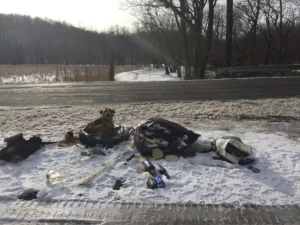
When they returned, the dog was still there, lying on the same black trash bag as if it were his only blanket. As they approached, he slowly lifted his head. His ears drooped, but his tail gave a single, hesitant wag.
“As soon as we reached out our hands for him to sniff, he stood up,” Katharine said softly. “It was like he’d been waiting all along for someone to notice him.”
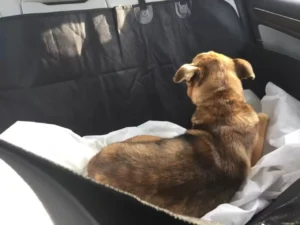
Despite his fear, the dog pressed his bony body against them, desperate for warmth and affection. They named him Whiskey, a nod to the distillery nearby and the strength he showed just by surviving. Wrapping him in a spare blanket, they placed him gently in the back seat of their car. At first, Whiskey lay motionless, too weak to react. But as the heater filled the car, his eyes brightened. He lifted his head to look out the window, as if realizing he was finally safe.
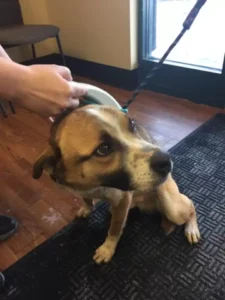
On that freezing Sunday, most places were closed—but by what felt like fate, the Kentucky Humane Society was open. Staff welcomed Whiskey with food, warmth, and care. “He wasn’t microchipped, neutered, or wearing any ID,” said Andrea Blair, the shelter’s PR director. “We don’t know if he was abandoned or simply lost. But what we did know was that he deserved a second chance.”
Nine days later, Whiskey had transformed. With proper meals and medical care, his energy returned, and his tail wagged constantly. And soon, a family walked through the shelter doors, saw him, and instantly knew he belonged with them.
From a trash pile to a warm bed, Whiskey’s story became one of survival, hope, and the simple truth that love can be found in the most unexpected places.



